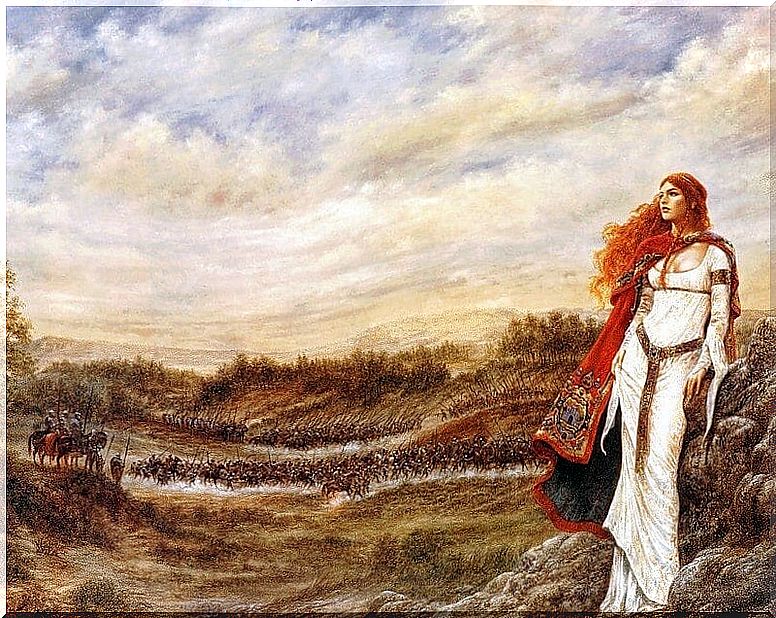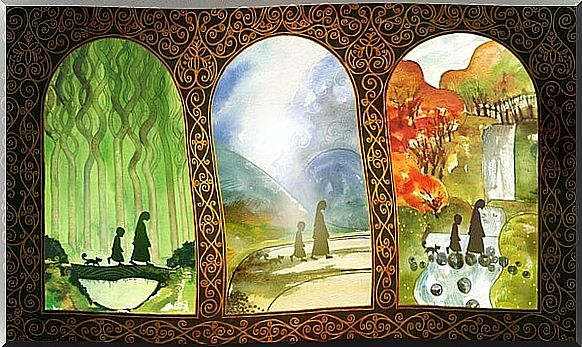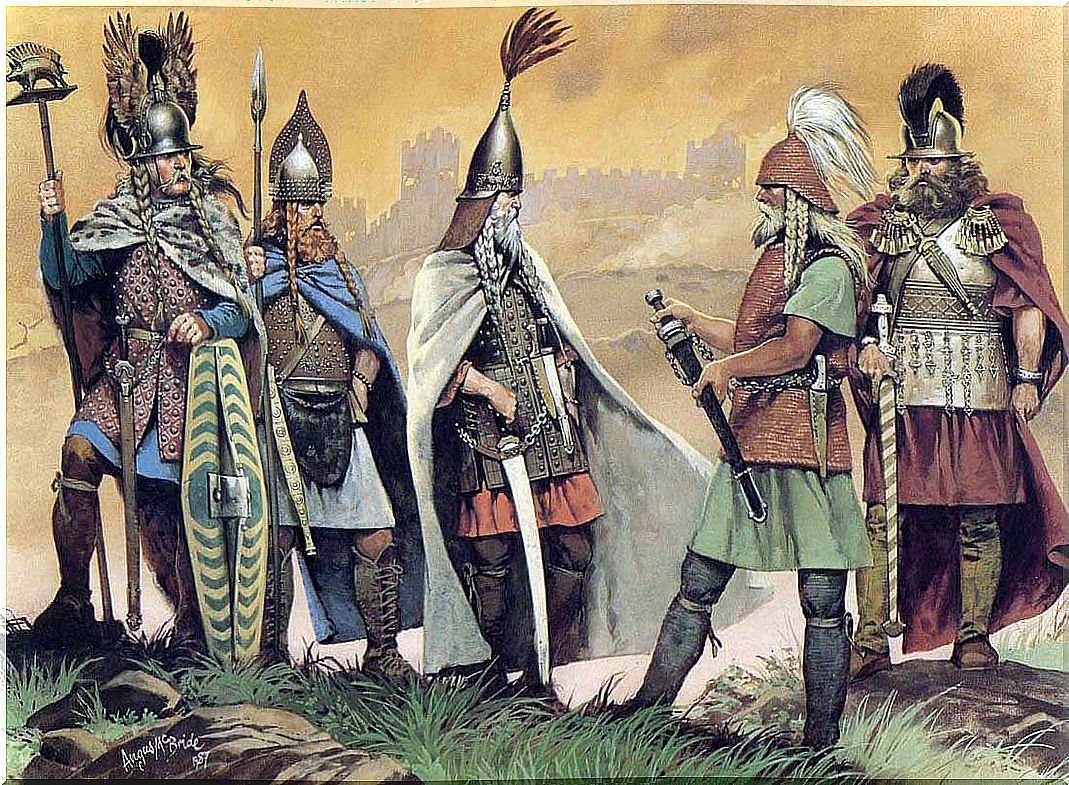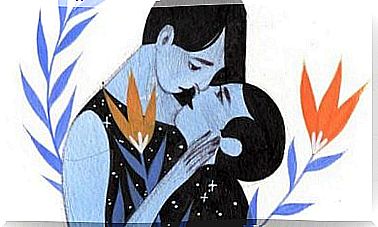7 Celtic Proverbs About Life And Love

The Celtic tradition is one of the oldest and most extraordinary in the world. Its customs, legends and history are very attractive to the curious, thanks to its staging in movies and television series. Celtic proverbs, in turn, are still valid in popular ideology as an important source of wisdom.
Although their territories were mainly concentrated in Great Britain, their dominions extended, on the one hand, towards eastern Europe and on the other towards Spain and Portugal. Its influence on our idiosyncrasy is still valid in areas such as Galicia, which still maintains its fortifications, called castros, whose function was to serve as a refuge in times of war.
They were great fans of the arts, which gave them a very special sensitivity. His knowledge also arises from it, which gives rise to the famous Celtic proverbs. They stand out for their sincerity, their overwhelming honesty and above all for their inner wisdom.
7 Celtic proverbs about life and love
1. A constant guest is never welcome
Being hospitable is a virtue; Abusing the trust of the host, a lack of manners. If you are going to visit a family member or friend, remember to stay the right time. You must not forget that you are in a house that is not yours and that therefore you are only a guest.
The days or weeks that you are there try to help with all the tasks. Be nice and courteous, and before you leave, give the owner a gift. In this way, he will know of your gratitude and will invite you again in the future.
2. Lie down with dogs and you’ll wake up with fleas
This is one of the best known Celtic proverbs. Be careful with the people with whom you interact, especially if you know that they are not good, especially if you deposit confidences in them that can turn against you. Many times we tend to approach people who do not suit us for various reasons, so that in social terms intelligence can also give us a great advantage.
If after ignoring the warnings you are harmed by your decision, the responsibility will be yours.

3. Against words full of anger nothing better than a closed mouth
In the face of insults, shouting and threats, the smartest and most successful thing to do is not to fight back. An angry person often sends a message without thinking about the content, the form or both. Don’t be tempted to catch up with them and be wise, especially if you value the relationship you have with that person.
Good sense and knowing how to choose words are essential skills so that a heated discussion does not end up deviating to the personal field, thus producing deep wounds. Containment in this sense shows your nobility and your knowing how to be : if you do not go down to the level of the other person, the most common thing is that this, sooner or later, ends up joining yours. In addition, you will have earned their respect and admiration.
4. Some of the sweetest berries grow between the most pointed thorns
Many times we feel discouraged with our life goals. We realize that we are trying our best, but we do not see the results: we make a force that does not generate work. The Celts tell us to try to make sure this difficult situation ends with your reserves of hope: with effort and perseverance, the results come positive, although they are not always as expected.
Hard work is a great ally of luck. The road may be long and full of obstacles, but the payoff will always be worth it. Think that some inspirations are of little use if they don’t catch us working.
5. Look up at the sun, but don’t turn your back on the storm
We all have good and bad times; As much as we want the constant or the everyday, life has a dynamic nature. This is one of the Celtic proverbs that invites you to look to the future with optimism, but do not trust yourself: the storm may take you by surprise. The Celts tell us to try to maintain a healthy balance between hope and caution, between adventure and “just in case”, so that growth on your part is possible in any circumstance.
In this sense, the brave person is not the one who ignores fears, but the one who acts by overcoming them. The one who dares to calibrate risks and acts assuming the consequences of their decisions.

6. Forgive the mistake, but don’t forget it
Forgiving is wise, but forgetting is foolish. Forgive those who have hurt you and forget the particular fact, but keep in your memory what you learned. Especially if the damage caused was unintentional, you have been asked for forgiveness or you have appreciated an attempt at repair on the part of the person who made a mistake.
Forgiveness will make you stronger and wiser at the same time. Use the lesson you have learned to understand how others may feel when you make a mistake. He thinks that coexistence is above all an exercise in empathy, especially in and in the face of error.
7. The truth is sometimes bitter. But like all medicine, it is necessary to swallow
There are times when we are so afraid of the truth that we prefer to listen to the lie. We deceive ourselves not to face situations … when deep down we know that it is a mistake. Accepting is the first step for change, for action and even for resignation when we have no room for anything else.
In the long run, if the lie is deep, it ends up doing more harm than the truth. Think about whether you prefer a sharp, but accurate blow, or a chronic wound that is difficult to heal. Your choices are the channel over which you exercise the proportion of control that corresponds to you over what happens to you.
These Celtic proverbs only highlight that the Celts were a people with classical reflections, understanding as classical what can hardly be done better. As well as astute strategists, they were pioneers in allowing women access to private property without depending on any man.
Today, his teachings take on more weight than ever and show us that tolerance, prudence and understanding of the world were already topics that were reflected on more than a thousand years ago, reaching conclusions and premises that are still compasses. smart for today’s world.
Illustration 2: Ethan Mongin









